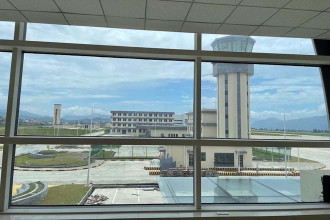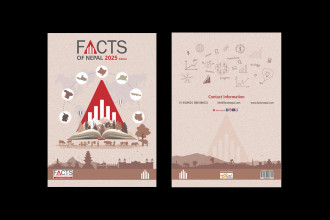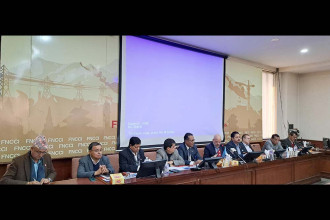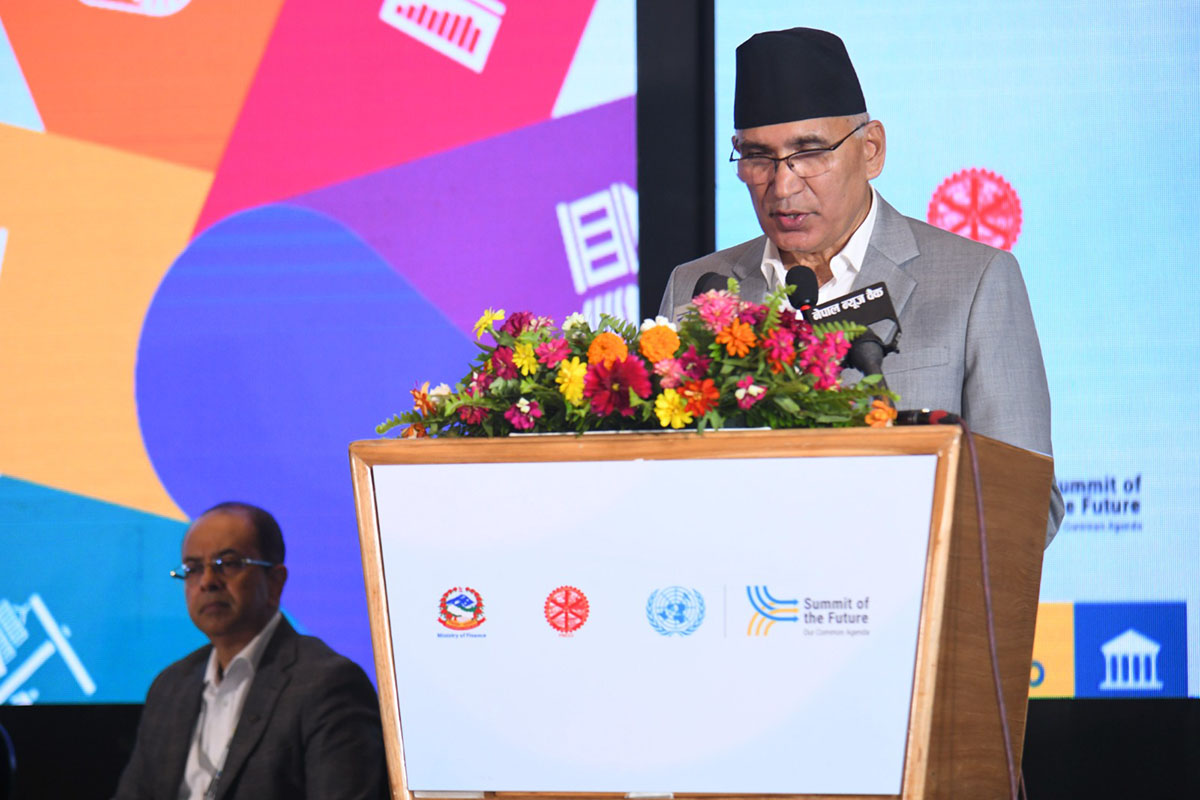
- Finance for Development Dialogue concludes with action points focused on mobilising sufficient financial resources and channelling them in support of SDGs
KATHMANDU: The Government of Nepal, the private sector, and the United Nations in Nepal have emphasised mobilising sufficient development finance to achieve Nepal’s key development targets including the SDGs.
During the 'Finance for Development Dialogue: Nepal’s Road to the Summit of the Future' organised by the UN Nepal in partnership with the Ministry of Finance (MOF) and the Federation of Nepalese Chambers of Commerce and Industry (FNCCI), Nepal’s pertinent stakeholders in finance and development highlighted the requirement of additional investment to achieve sustainable development and accelerate structural transformation of the economy.
Addressing the programme, Deputy Prime Minister and Finance Minister Bishnu Prasad Paudel highlighted the challenges of resource management for development, particularly in the context of developing and least developed countries (LDCs) struggling to mobilise internal revenues. He acknowledged Nepal’s difficulties arising from low revenue collection and mounting public debt obligations.
He emphasised that a significant portion of government revenue is currently allocated to servicing public debt, which risks hindering investment in development initiatives. This situation poses a threat to achieving sustainable development goals. The United Nations has consistently emphasised the importance of mobilising capital for development, aligning with the principle that “nobody should be left behind” in pursuing these goals.
Minister Paudel also pointed out that the scarcity of investment sources remains a central challenge for developing countries and LDCs. These nations are disproportionately affected by the impacts of climate change. Additionally, factors such as high trade deficits, sluggish economic growth, and diminishing development assistance trends further compound the challenges faced by these countries.
To address these issues, Minister Paudel called for exploring innovative and alternative approaches to development financing. He stressed the need to draft a comprehensive development fiscal plan that optimally utilises all available resources, including internal funds, private capital, and development assistance. While Nepal’s revenue-to-GDP ratio appears favourable, ensuring its sustainability remains crucial.
Furthermore, the flow of foreign direct investment (FDI) and external sector capital remains relatively modest. Challenges related to public debt, economic growth rates, and long-standing structural issues persistently confront the economy. Minister Paudel affirmed that Nepal, despite contributing minimally to global carbon emissions, experiences direct climate change impacts, necessitating a significant budget allocation for climate adaptation. The government aims to secure new resources and instruments for development finance.
In pursuit of economic development, Minister Paudel emphasised the pivotal role of the private sector. The 16th periodic plan prioritises private sector engagement, recognising it as a key development partner. The government is committed to creating an enabling environment for private sector investment by preparing a development finance framework that attracts private capital and focuses on result-oriented projects. Broader discussions with development partners will inform the way forward.
He stated that the government is diligently working to create employment opportunities within the country. He firmly believes that enhancing both government and private investment could lead to an increase in employment prospects. Furthermore, he emphasized that the government aims to attract foreign investment, not just internal capital.
“Internal resources and technology alone are insufficient for Nepal’s development initiatives,” he asserted. “We are committed to bringing in foreign capital and technology, while also establishing robust policy-level and legal frameworks. Additional efforts will focus on legal reforms and enhancing policy clarity.”
The Finance Minister went on to share that Nepal has set a target to transition from a least developed country (LDC) to a developing country by 2026. As part of this strategy, the country is preparing for a ‘Sovereign Credit Rating’ to leverage opportunities and attract further investment once the transition is complete.
Regarding public financial management, he highlighted ongoing policy-level efforts aimed at improving the system.
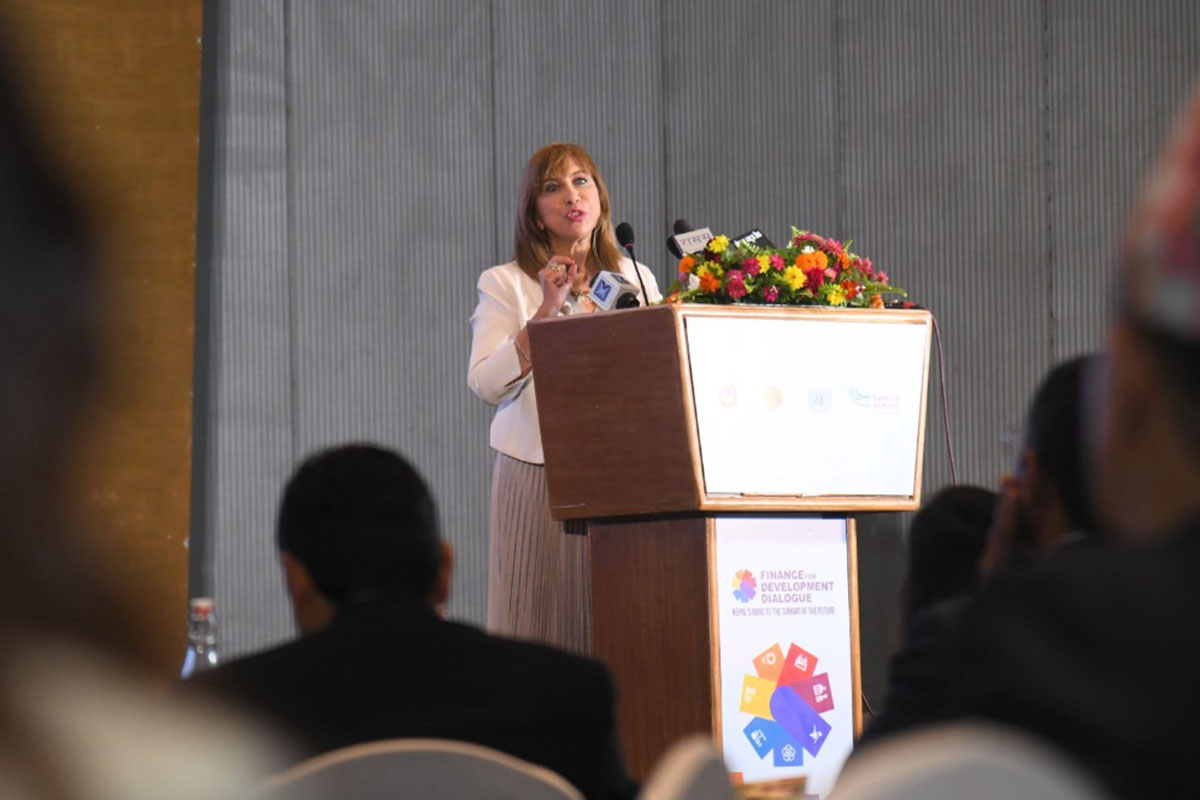
UN Resident Coordinator in Nepal, Hanaa Singer-Hamdy, underlined that as Nepal spearheads towards graduation from its LDC status, bold and decisive actions to strengthen economic foundations are needed. She stressed the need to focus on domestic reforms, advancing financial inclusion and gender equality, embracing digital transformation, and advocating for international cooperation.
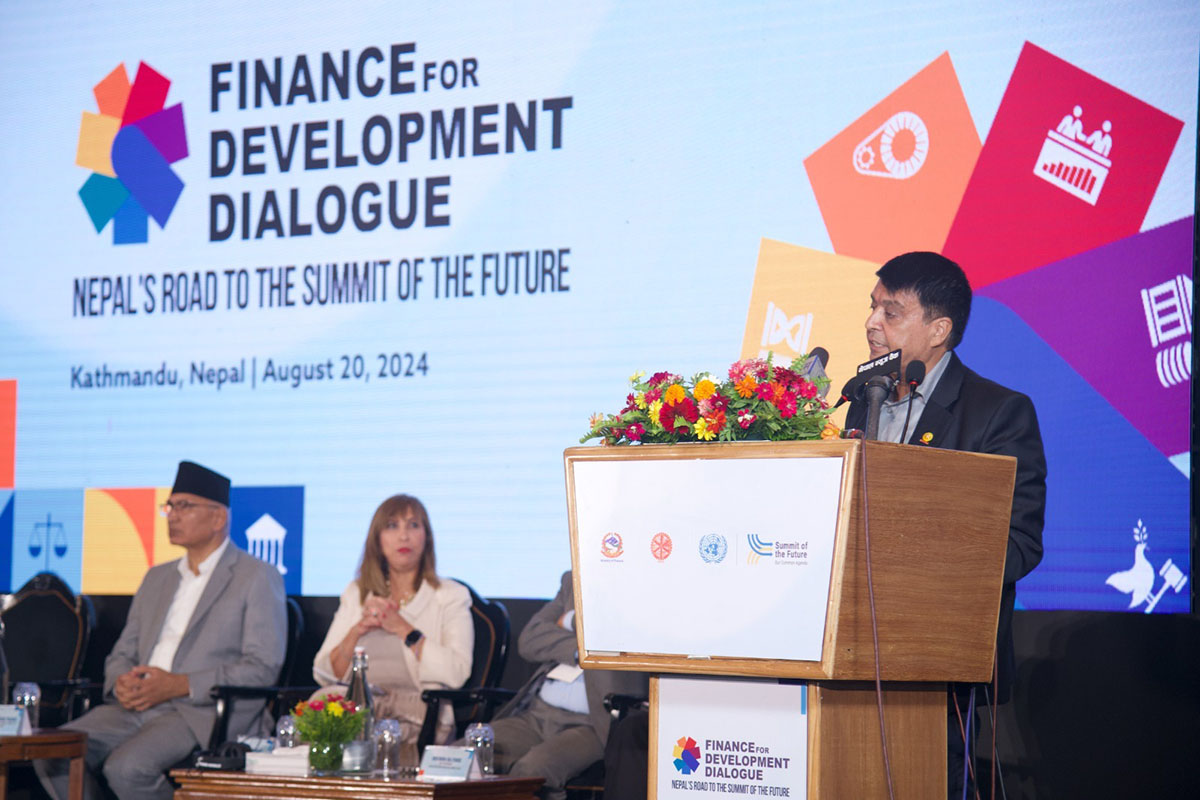
During the same event, FNCCI President Chandra Prasad Dhakal expressed concern about Nepal’s low volume of foreign direct investment (FDI). “Our FDI stands at a mere 0.2% of our GDP, which is significantly lower compared to other countries,” he remarked. “Nepal has fallen short of achieving its foreign investment targets.”
President Dhakal further warned that heavy reliance on loans poses risks to long-term economic stability. Over the past nine years, public debt has doubled, and this increasing dependence on loans is unsustainable.
"As Nepal progresses toward its goal of graduating from an LDC to a developing country, managing this loan dependency becomes even more critical," Dhakal added.




